Tapping the potential of birch water
- Published
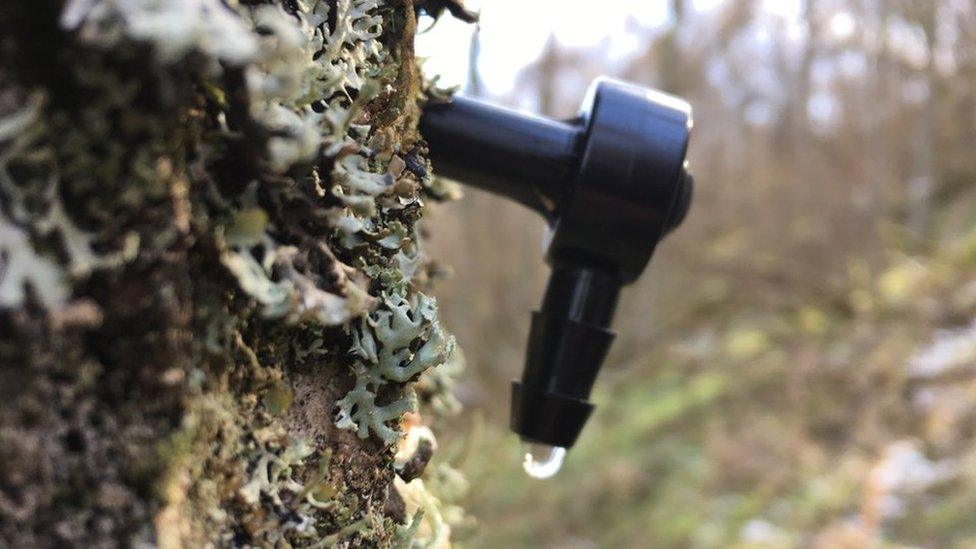
There is a three-week window at the end of winter to harvest the sap of the birch tree
Birch water is popular across Finland and the Baltic States for its alleged health benefits and now the ancient practice is starting to catch on again in Scotland.
You don't need to be a rocket scientist to work out that birch water is something to do with birch trees, which grow with their tell-tale white bark in many parts of Scotland.
But to get birch water out of a birch tree you need to know not just where, but also how and - just as importantly - when to go about it.
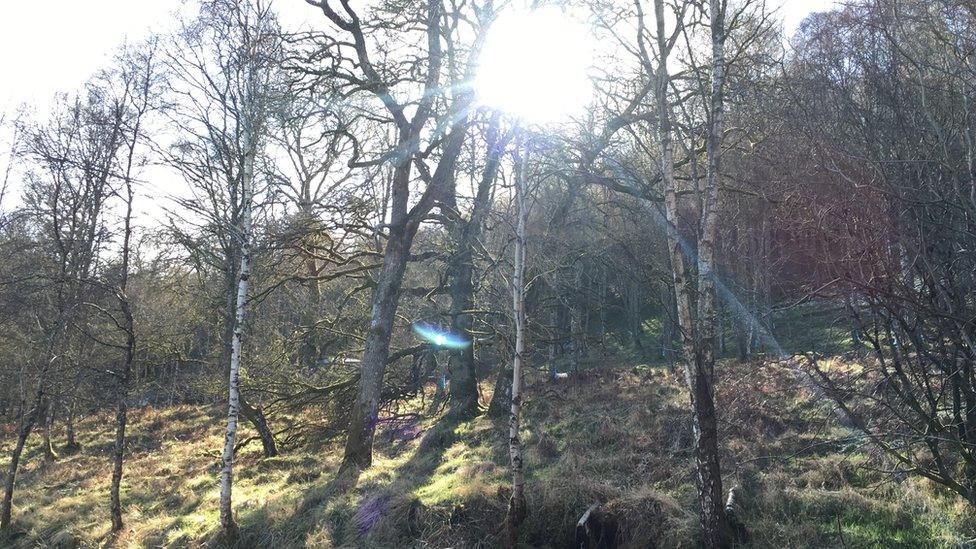
The birch tree has a tell-tale white bark
In a forest somewhere in Perthshire, the exact location needs to remain secret, Rob and Gabrielle Clamp are harvesting birch water for their company Birken Tree.
The technique is similar to how maple syrup is collected in places like Canada, and was relatively common in Scotland hundreds of years ago.
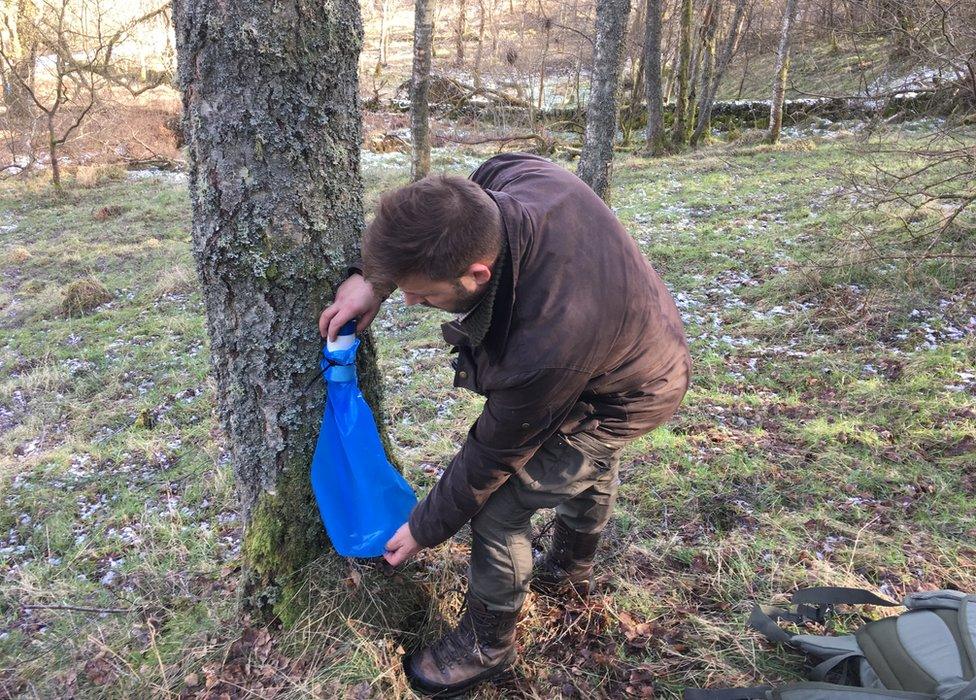
Rob says the technique was common in Scotland several hundred years ago
Rob says: "We've traced this back to at least 5,000 years ago. People back then were using birch sap in Scotland.
"It was traditionally used in the Highlands over many centuries after long winters as a tonic because it is so full of vitamins and minerals."
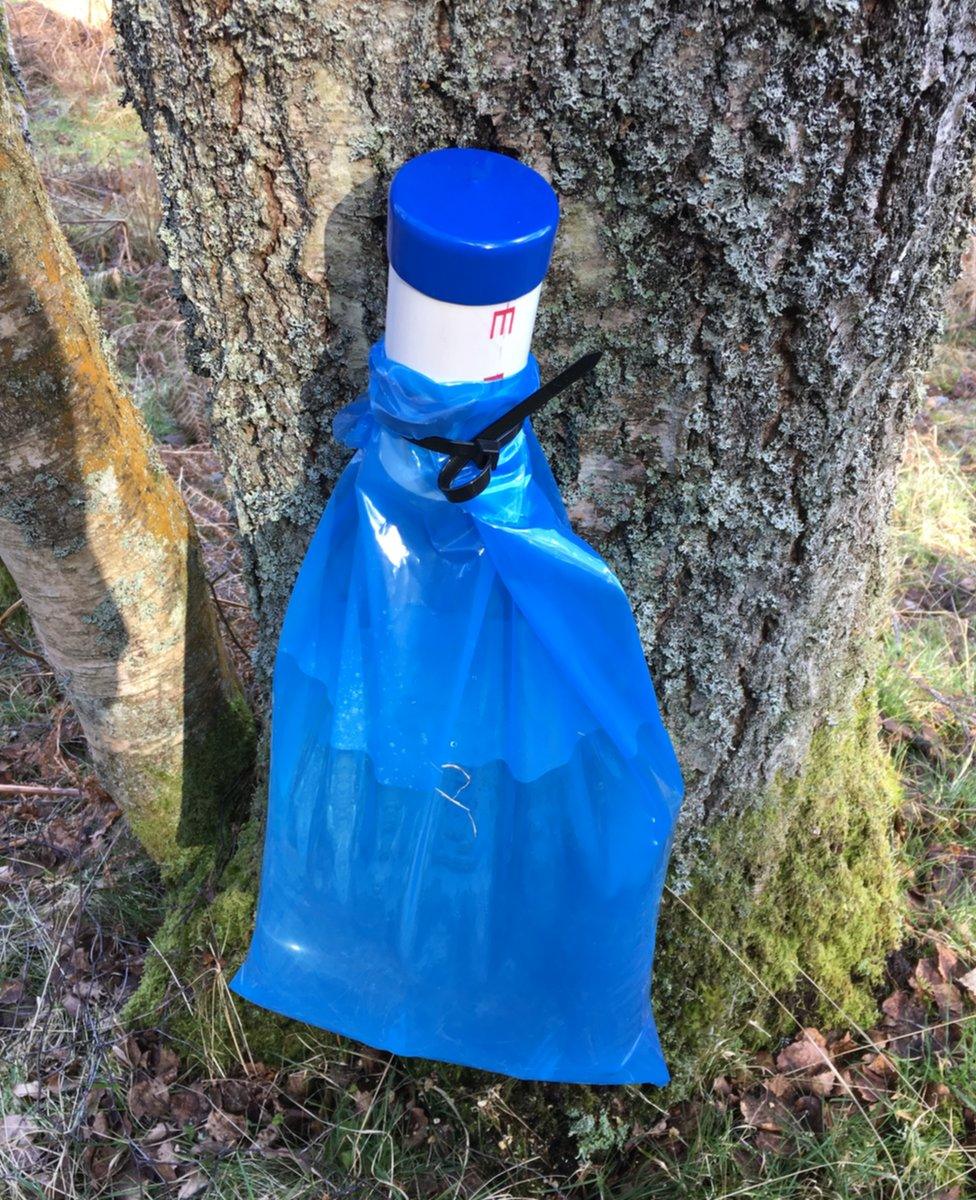
The trunks are tapped releasing the valuable liquid into attached bags

For just three weeks as winter ends, water, minerals and sugars are pushed up from the roots of the birch and the trunks are tapped releasing the valuable liquid into attached bags.
Rob says the window is "very tight".
"You have to rely on your instincts a bit," he says.
"You are watching all the signs of nature, the bud swelling before it goes into leaf."
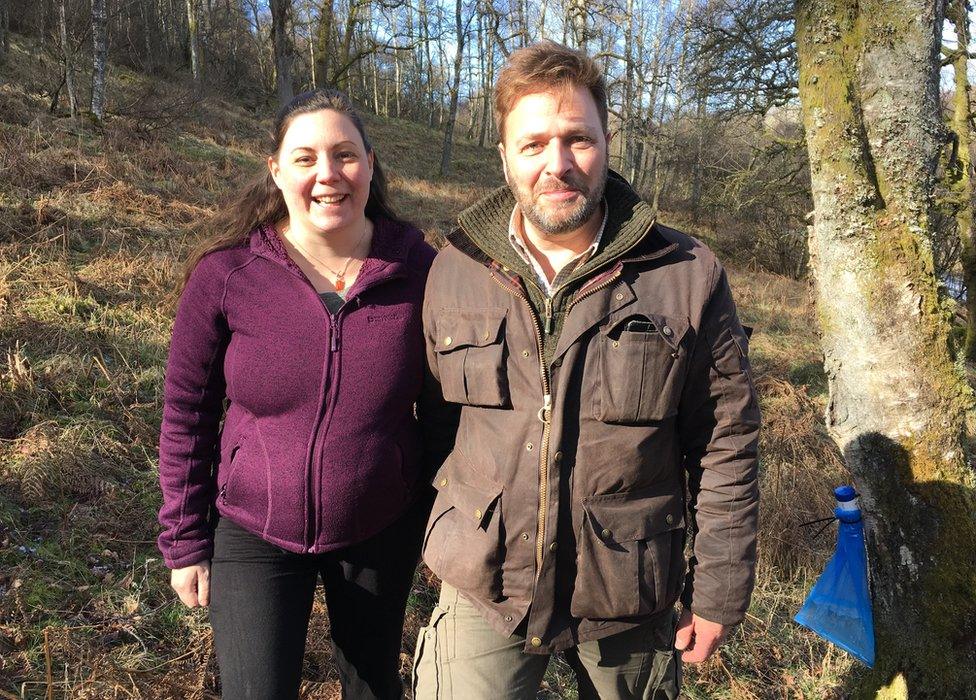
Rob and Gabrielle Clamp say the window for harvesting the water is tight
Rob and Gabrielle are not the only people literally tapping the potential of birch water.
Twenty miles south west of Inverness another start-up hopes to produce birch water alongside a vodka distillery at Gorthleck by Loch Mhor.
Andrew Hornby hopes to tap almost all-year-round.
He says his land is naturally wet because of the water coming down from higher ground.
"All year areas of the land are sodden to a level that keeps the birch trees giving me the opportunity to tap them," he claims.
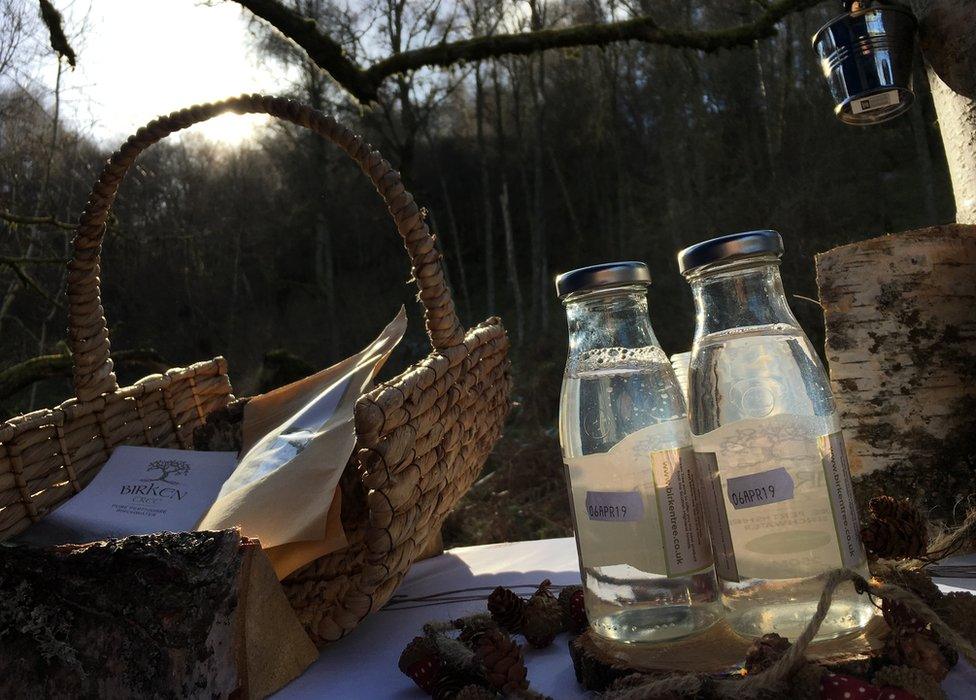
The water starts to ferment after just a couple of days
As well as being difficult to harvest, the sap also starts to ferment after two days.
Even with gentle pasteurisation to preserve the goodness, it only lasts about a month in bottles.
Andrew Hornby, like Rob and Gabrielle Clamp, is working on ways of creating a long shelf life but without sterilising the birch water.
This is done with imported birch water from places like Finland and Estonia which is sold in some supermarkets.
'No magical properties'
Birch water is often marketed as a "superdrink" with properties which claim to help arthritis as well as stomach and skin ailments but dietician Lesley Reid says if you like the taste fine, otherwise don't believe the hype.
She says: "There is no such thing as a superfood or a superdrink and there is no clinical evidence that birch water can cure or improve all these symptoms.
"You might as well be drinking water and milk and other fluids.
"It will keep you hydrated but it does not have magical properties."
So it boils down to this.
Birch water will do you no harm, but won't necessarily do you much good, leaving the real test as how does it taste?
Pleasant. It is water with a nice woody taste.
Rob says I was tasting early sap and the flavour develops over the harvesting period.
"It gets slightly sweeter, there is more aroma, it's slightly thicker," he says.
Maybe I'll try the week-three vintage next time.